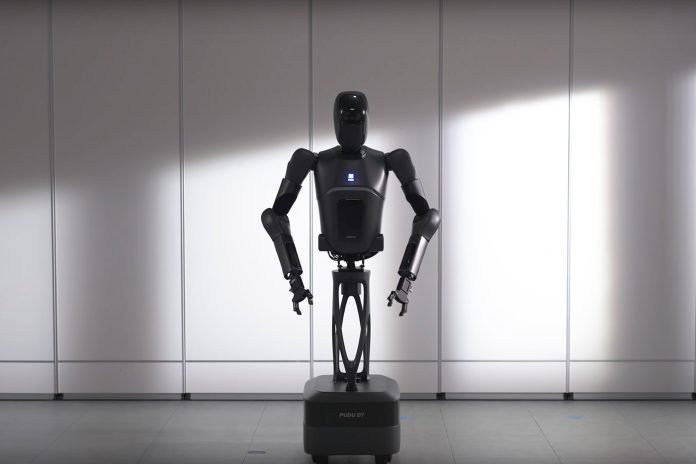Pudu Robotics has recently introduced the PUDU D7, its first semi-humanoid robot, marking a notable expansion in the company’s service robotics portfolio. The PUDU D7 reflects Pudu Robotics’ growing focus on delivering adaptable and versatile robotic solutions. The company, headquartered in Shenzhen, China, expects to fully commercialize this new robot by 2025.
Pudu Robotics, founded by Felix Zhang, has a history of creating service robots for industries such as retail, dining, hospitality, healthcare, and education. The company has already deployed over 80,000 units globally, enhancing operational efficiency and improving customer experiences in these sectors. With the release of the PUDU D7, Pudu seeks to broaden the capabilities of service robots to cater to even more diverse applications.
What is a semi-humanoid robot?
Earlier this year, Pudu Robotics introduced the semi-humanoid robot concept as part of its long-term vision for the robotics industry. The semi-humanoid robot sits between specialized task-oriented robots and fully humanoid robots that are designed for complex human-machine interactions. The PUDU D7 is designed to address a range of service and industrial tasks, offering greater flexibility in environments where both mobility and human-like dexterity are required.
Unlike traditional service robots, which tend to be limited to specific tasks, the PUDU D7 integrates a human-like upper body with robotic arms and an omnidirectional wheeled base. This configuration allows the robot to perform more complex tasks without the need for bipedal movement, making it both adaptable and easier to develop than fully humanoid robots.
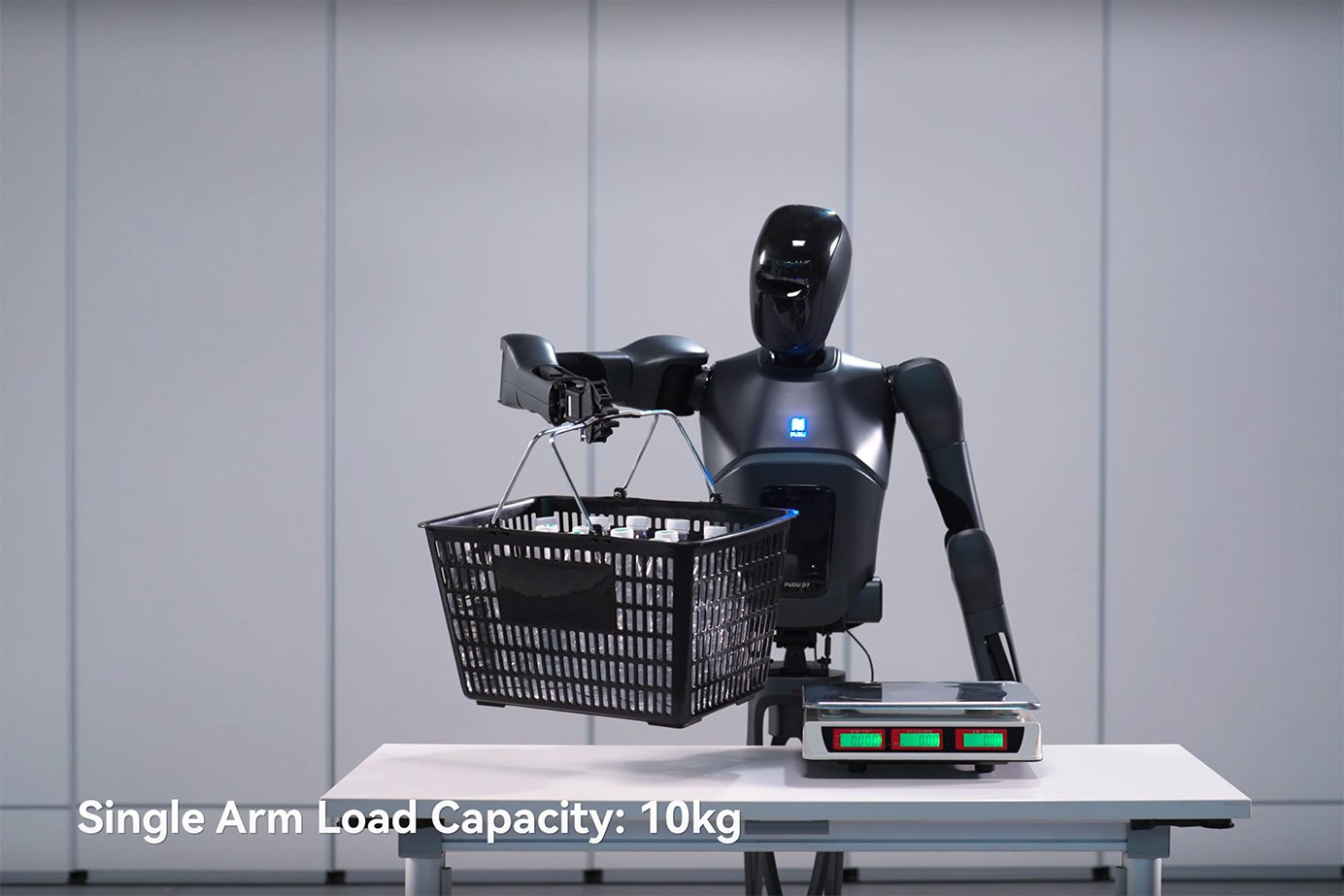
Pudu is not the first to explore this semi-humanoid design; earlier in the year, Rainbow Robotics also introduced a similar concept with its RB-Y1 mobile robot. However, the PUDU D7 differentiates itself through its enhanced dexterity and mobility features.
Key features of the PUDU D7
The PUDU D7 stands at 165 cm (approximately 65 inches) tall and weighs 45 kg (99 lb). It has a robotic arm that extends up to 65 cm (25.5 inches) and operates with 30 degrees of freedom, which can be expanded to 50 degrees when equipped with a dexterous hand attachment. These features make the robot well-suited for tasks such as elevator operation, transporting items, and sorting tasks.
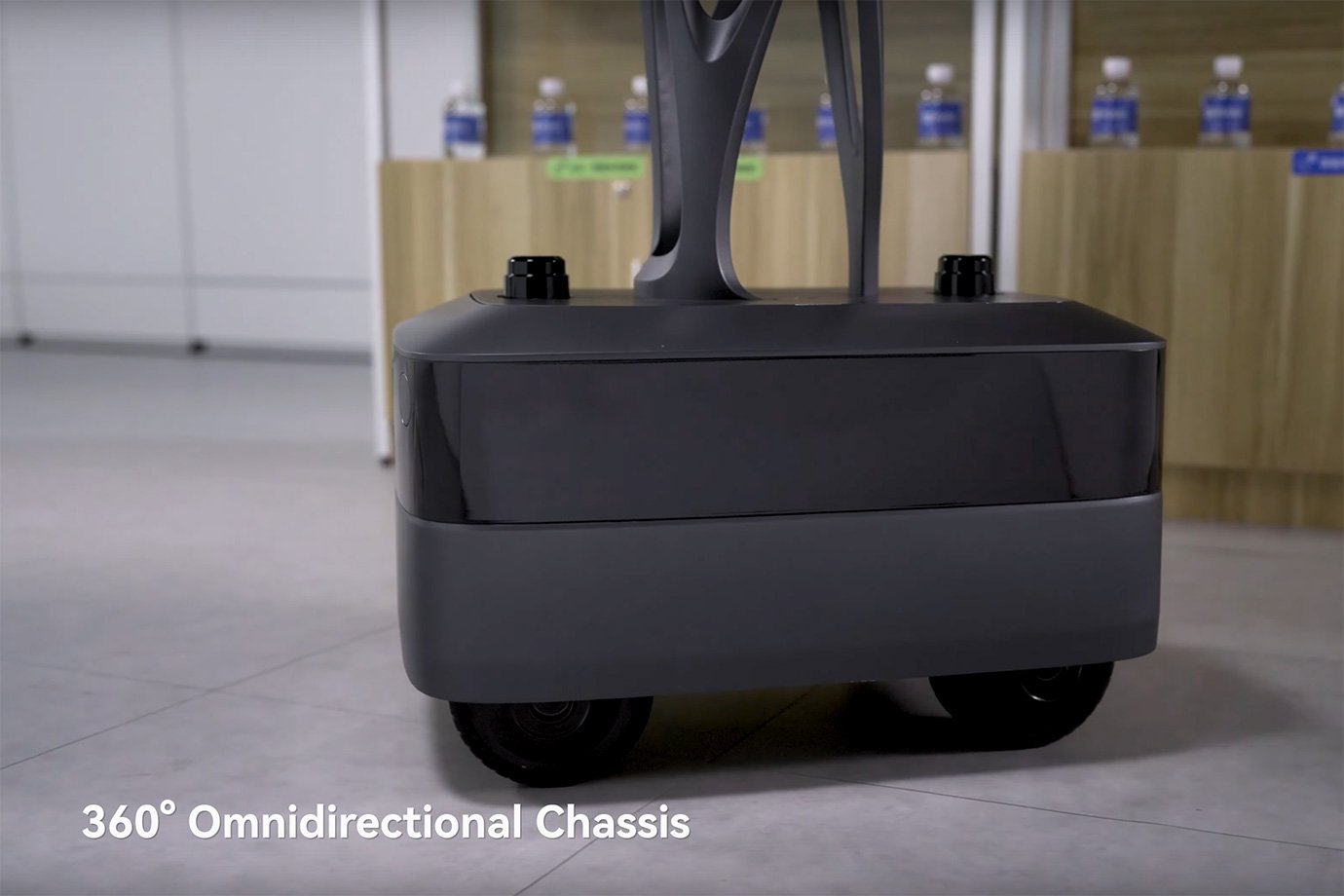
One of the key aspects of the PUDU D7 is its omnidirectional mobility. Equipped with a wheeled chassis, the robot can achieve a top speed of 2 meters per second (4.4 mph) and maintain stability even on slopes of up to 10 degrees. This level of maneuverability allows the robot to navigate complex environments with ease, making it suitable for various service-oriented spaces as well as industrial settings.
Another important feature is the PUDU D7’s robotic arms, which can lift up to 10 kg (22 lb) with end-point precision reaching 0.1 mm. This precision enables the robot to handle delicate and intricate tasks, such as sorting items or delivering fragile goods, without risking damage. The robot’s overall mobility and precision make it an ideal candidate for industries requiring highly adaptable automation solutions.
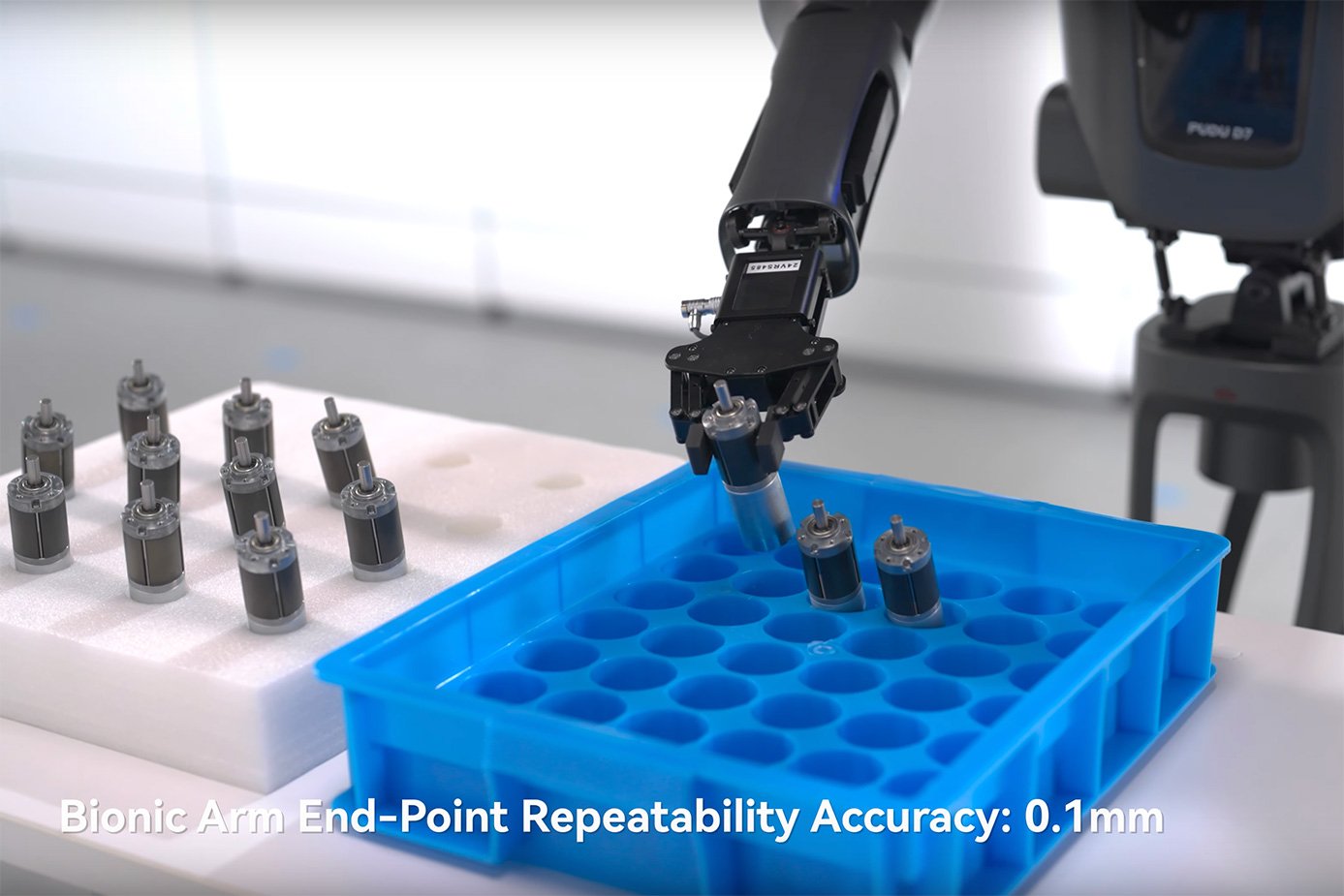
Power and intelligence
The PUDU D7 is powered by a battery exceeding 1 kWh, providing it with more than eight hours of continuous operation. The robot is also equipped with a multi-layered intelligence system that combines data-driven embodied intelligence with advanced artificial intelligence (AI) model strategies. This system allows the robot to perform both high-level planning tasks, such as navigating complex service environments, and low-level real-time actions, such as handling objects or operating machinery.
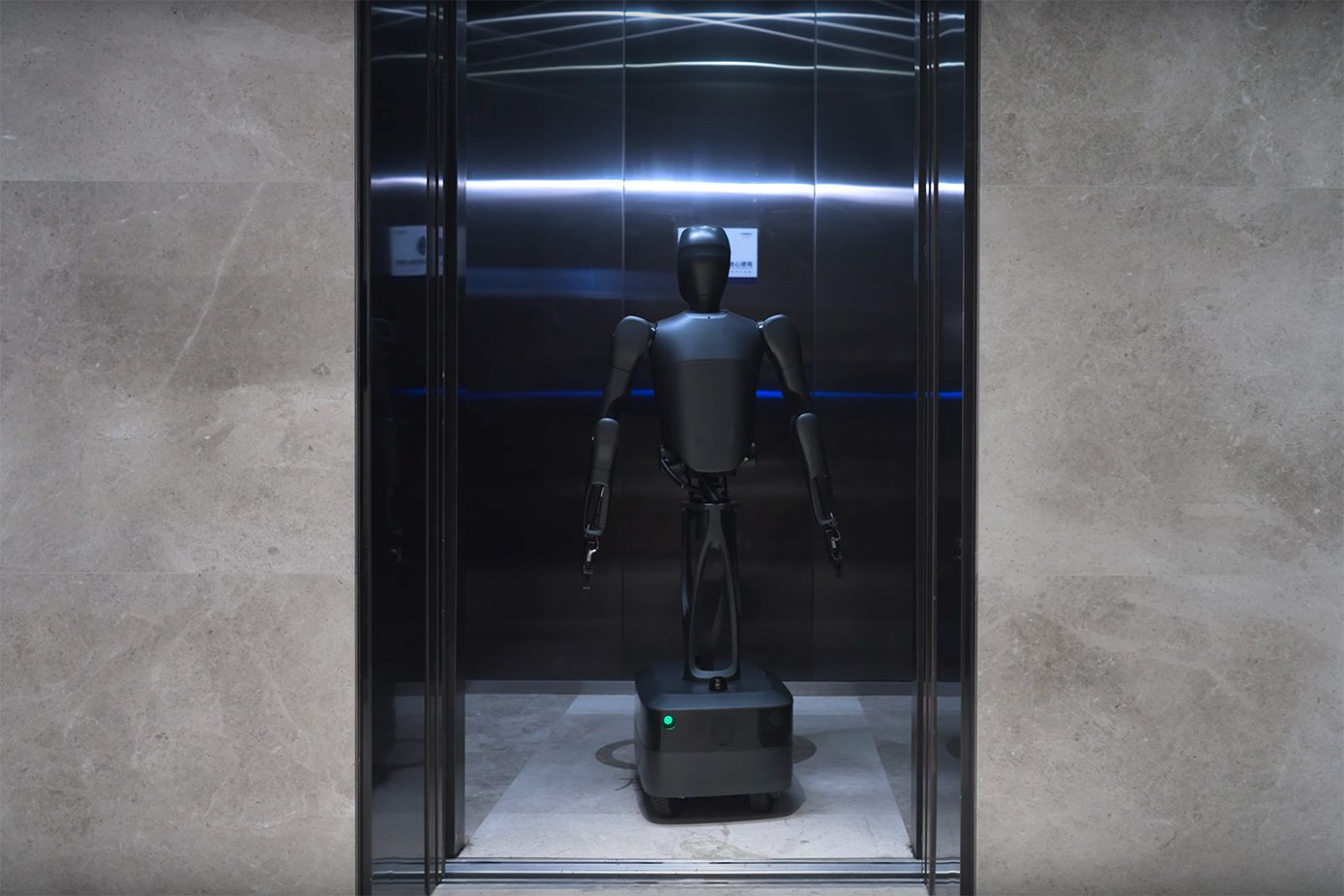
By integrating a hierarchical control system, Pudu Robotics has ensured that the PUDU D7 can intelligently manage complex service scenarios while continuously learning and refining its operations. This capability positions the robot as a valuable tool for industries that require adaptable, smart robots capable of improving over time as they gather more operational data.
Versatile applications
The PUDU D7 is designed to meet the needs of a wide variety of industries. Its advanced mobility and dexterity allow it to operate effectively in service-oriented environments like retail stores, hospitals, and hotels. At the same time, its strength, precision, and adaptability make it suitable for more industrial applications, such as in factories or logistics centers where robots are required to perform repetitive tasks with a high degree of accuracy.
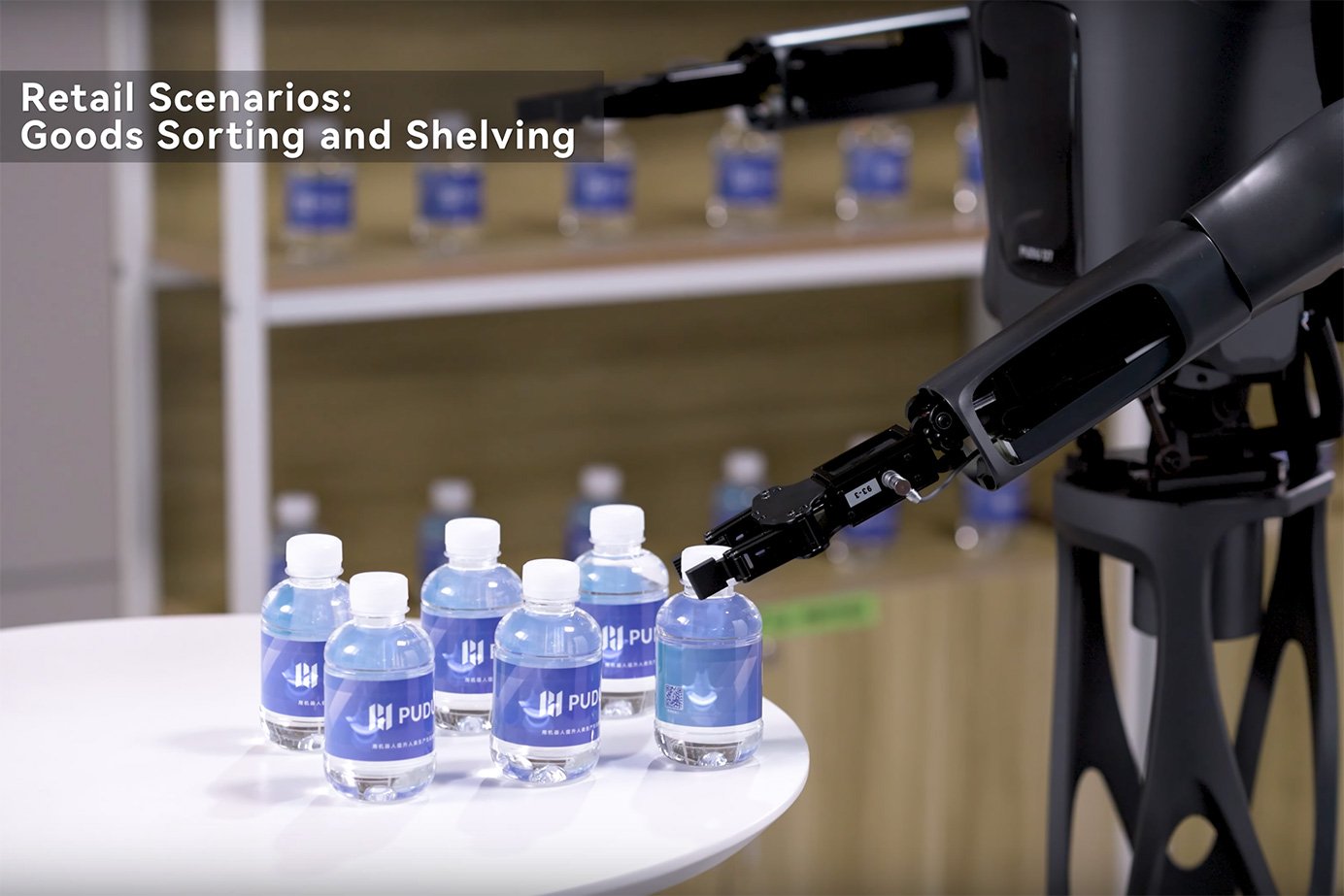
Pudu Robotics’ broader strategy includes creating a comprehensive ecosystem of specialized, semi-humanoid, and fully humanoid robots that can work together to meet the diverse demands of various industries. The company believes that the PUDU D7 represents an important step toward achieving this vision.
Pricing information for the PUDU D7 has not been announced yet, as the robot is still in the pre-commercial phase.
Source: Pudu Robotics

